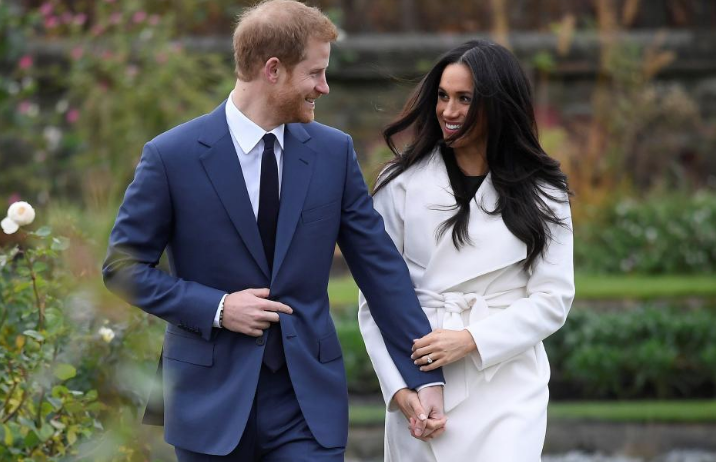From Nazi uniform to the Stephen Lawrence memorial: Prince Harry's impressive journey to maturity
The last VIP guests to arrive yesterday afternoon at the memorial service at St Martin-in-the-Fields church in Trafalgar Square, central London, marking 25 years since the racist murder of Stephen Lawrence, were Prince Harry and his fiancee Meghan Markle.
The prince stopped at the entrance to the church and chatted for a few moments with Doreen Lawrence, Stephen's mother, before reading a message of support from his father, the Prince of Wales, during the service.

The appearance marked the culmination of an impressive journey for the 33-year-old, who in 2005 caused a major royal racism row when an image emerged of him wearing a Nazi uniform to a fancy dress birthday party.
Back then, Clarence House issued a statement saying: 'Prince Harry has apologised for any offence or embarrassment he has caused. He realises it was a poor choice of costume.'
But that was not the end of allegations of racism against the young man who is now fifth in line to the throne. In 2009, Harry apologised for using offensive language to describe an Asian member of his Army platoon after video footage of the incident emerged.
St James's Palace said the prince was 'extremely sorry for any offence his words might cause' but said he had 'used the term without any malice and as a nickname about a highly popular member of his platoon'.
Nonetheless, it is said to have been his experiences in the armed forces that matured Harry, who strayed into wild partying including smoking cannabis and excessive drinking during his teenage years following the traumatic and extremely public death of his mother, Princess Diana.
Now, it would be hard to make accusations of racism against Harry who, after all, is marrying the mixed-race Markle.
Instead, with his charity work – especially focused on mental health and the disabled, as well as backing the Halo Trust's work in clearing landmines and helping children affected by HIV and Aids – Harry can be said to have grown into a prize asset for the royal family.
Yesterday, his older brother Prince William and wife Katherine Middleton briefly stole the limelight with the birth of their third child, a boy.
But it is Harry – whose wedding is in less than a month – who seems most to capture the public's imagination and empathy these days.
Harry spent a total of 10 years in the armed forces, during which he saw action in Afghanistan twice, including as an Apache helicopter co-pilot and gunner.
He was reportedly disappointed in May 2007 when army chiefs decided not to send him to Iraq because of 'unacceptable risks', but – becoming the first royal in 25 years to serve in a war zone – he then spent 10 weeks serving in Afghanistan in 2008, before having to pull out amid concerns for his safety after news leaked of his unpublicised deployment.
However, he returned to Afghanistan as an Apache helicopter pilot from September 2012 to January 2013, before qualifying as an Apache commander in July 2013.
Harry later described how he had shot at Taliban insurgents, adding that being in Afghanistan was 'as normal as it's going to get' for him.
The prince has said of his military career, which came to an end in 2015, that it will 'stay with me for the rest of my life'.
Indeed, the most notable part of Harry's charity work has been his founding, in 2014, and chairing of the Invictus Games, a Paralympic-style international competition for injured ex-service personnel.
It was at the 2017 Games in Toronto, Canada where Harry was first seen in public with Markle, holding hands and fuelling speculation about their relationship.
Now, the pair embody a very modern royal couple. And as Harry walked up the steps of St-Martin-in-the-Fields yesterday to be greeted by Doreen Lawrence, that Nazi uniform controversy seemed truly to be a thing of the past.











